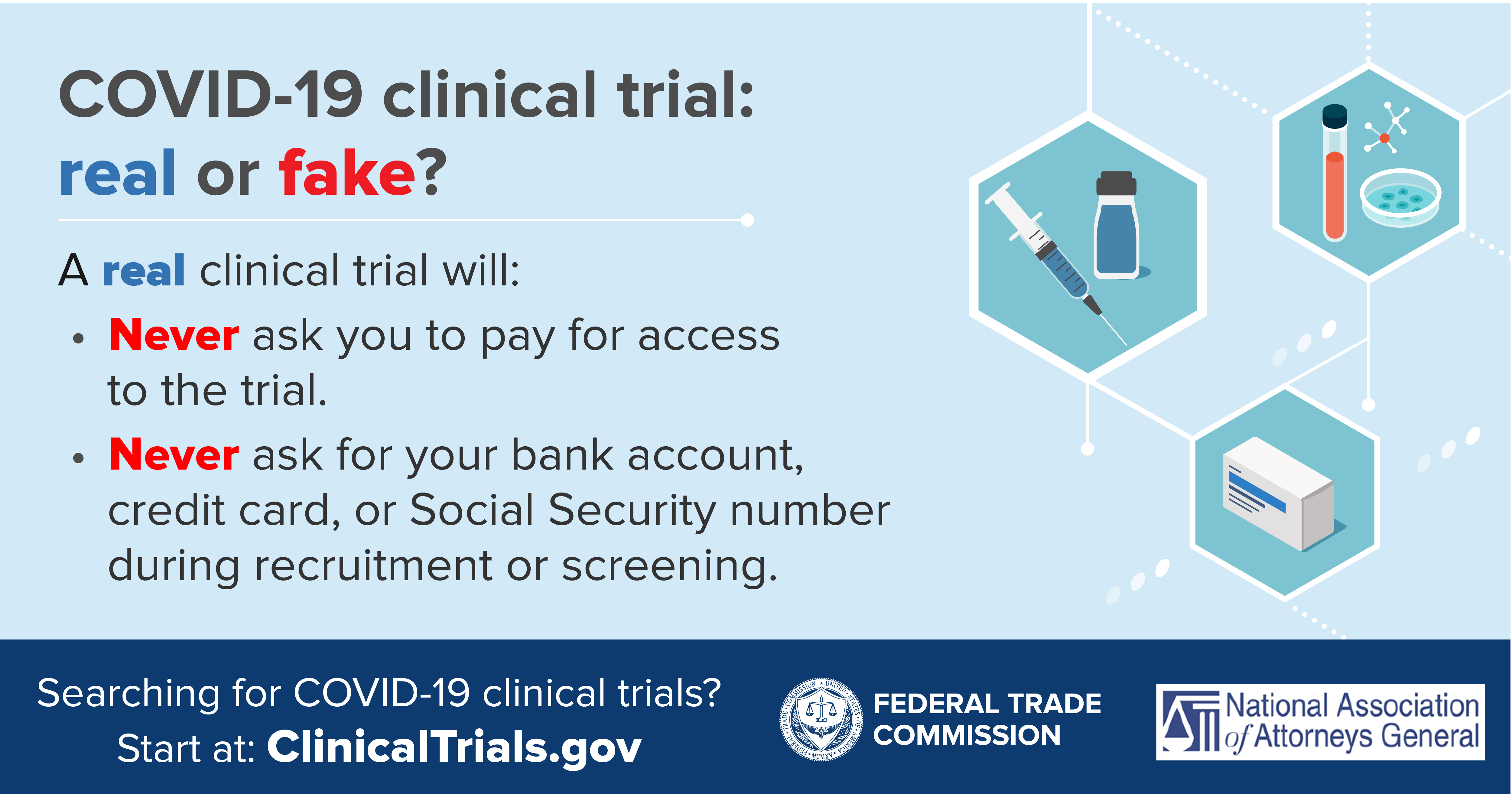There are thousands of trials underway as companies race to find effective vaccines and treatments for COVID-19. Many of these research studies are legitimate, but some are not. So, if you’re thinking about volunteering for a COVID-19 trial, it’s important to know how to spot the real trials advancing medicine for everyone, versus the fake ones trying to steal your money and personal information.
Preying on our natural desire to help others, scammers have created fake websites and promotional materials, posing as legitimate researchers. Their goal? To take your personal information and your money. They might promise you a doctor’s care and more than $1000 in payment...but as soon as they try to charge you for access, or ask for your Social Security, bank account, or credit card number, your Spidey sense should start tingling, because, unfortunately, some of these so-called “research studies” are fake.
If you’re interested in participating in a COVID-19 or other research study, here are some things to keep in mind:
-
Never pay to be part of a clinical trial, or to find out about one. Real clinical trials will never ask you to pay them.
-
Do an online search before you join, with the name of the clinical trial and the words “scam,” “review,” or “complaint.”
-
Legitimate clinical trials do gather information to identify ideal candidates. To screen for participants for COVID-19 trials, they might ask for your name, contact information, age, gender, race, ethnicity, or various pre-existing conditions associated with higher risk of a COVID-19-related mortality. But they should never ask you to give your Social Security number during recruitment or screening.
-
Never share financial information (like your bank account or routing number). Most legitimate trials will offer to pay people to participate in the trial, but you can ask to be paid by check rather than direct deposit. The amount you get will vary based on the trial, but it can range from $1,000-$2,500, particularly in Phase III of vaccine trials.
-
The National Institutes of Health (NIH) and the National Library of Medicine (NLM) maintain ClinicalTrials.Gov, a free searchable database of clinical studies on a wide range of diseases. You can also use the database to get more information about studies, including whether they’re recruiting participants, and their contact information.
-
If you’re interested in volunteering for a COVID-19 trial, you can sign up at the COVID-19 Prevention Network, a site run by the National Institute of Allergy and Infectious Diseases at the National Institutes of Health.
If you spot a trial that’s charging people to participate, or demanding your SSN or financial information during screening, be sure to tell the Federal Trade Commission.
You can also file complaints with your attorney general regarding consumer issues, frauds, and scams. To find your state attorney general, visit consumerresources.org.

